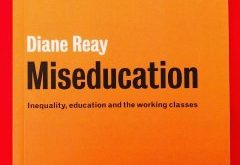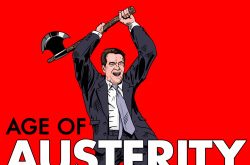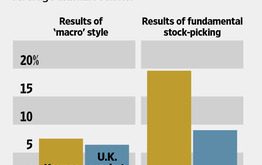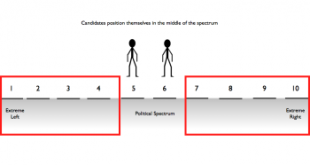When Diane Reay, Cambridge University professor of education, started researching her book about working class children’s experiences of education, she had no idea just how much inequality she would uncover in state schools today … She expected to find the English state system was providing roughly the same education for all. “But it doesn’t” … Reay’s background informs her book and her opinions. The daughter of a coalminer, and the eldest of eight, she grew up on a council...
Read More »Die Soziale Spaltung wird durch Privatschulen zementiert
Die Soziale Spaltung wird durch Privatschulen zementiert Der Bildungswissenschaftler Marcel Helbig hat für das Wissenschaftszentrum in Berlin die soziale Spaltung in Deutschland messbar gemacht. In seiner aktuellen Studie … hat er zusammen mit seiner Kollegin Stefanie Jähnen gewaltige Datenmengen aus 74 deutschen Städten ausgewertet. Er wollte wissen, wie sich einkommensschwache Menschen auf die Stadtgebiete verteilen. Das Ergebnis: Bis auf wenige Ausnahmen...
Read More »Give the public debt some respect and end austerity!
Give the public debt some respect and end austerity! The claim that our public debt is excessive has been used as a major justification for austerity – cuts in spending. That massive debt, we are told, 1) must be repaid, 2) threatens our country with bankruptcy, and 3) is a burden on future generations. All these are wrong. Let me explain why … Britain’s national currency is managed by our central bank, the Bank of England, owned by the citizens of the...
Read More »Keynes als Investor
Lange prägten Legenden das Bild des Investors Keynes. Sein Biograf Donald Moggridge etwa berichtet, dass Keynes das Volumen der King’s Chapel, der weltberühmten gotischen Kapelle des Colleges, schätzen ließ, in der Absicht, dort Getreide einzulagern, um es später mit Gewinn zu verkaufen. Wie Keynes wirklich für das College investiert hat, haben kürzlich zwei Ökonomen untersucht. David Chambers (Cambridge) und Elroy Dimson (London) konnten Abrechnungen und Jahresberichte aus...
Read More »Why every economics paper should come with a warning label
Why every economics paper should come with a warning label It should be part of the academic competences of trained economists to be able to be clear about what their models are for; what the models are about; what the models are capable of doing, and what not; how reliable the models are; what sorts of criticisms have been levelled against the models and how the criticisms have been responded; what alternative models there are; etc. The challenge is not...
Read More »Was Deutschland vom schwedischen Schulsystem lernen kann — fast nichts!
Was Deutschland vom schwedischen Schulsystem lernen kann — fast nichts! Die vorliegende Darstellung der gegenwärtigen Bildungsdebatte in Schweden und einiger der ihr zugrunde liegenden Entwicklungen verfolgt eine doppelte Zielsetzung. Zum einen will sie gegebenenfalls zu einem etwas nüchterneren, realistischeren Blick auf die schwedische Schule beitragen. Noch immer wird Schweden von manchen Betrachtern und Betrachterinnen zu einer Art „pädagogischem...
Read More »The challenges of tractability in economic modelling
The challenges of tractability in economic modelling There is a general sense in which the whole idea of model and model-based science derive from the need for tractability. The real world out there is far too intractable to be examined directly … therefore one directly examines the more tractable model worlds … Many of these tractability-enhancing assumptions are made because the math that is being used requires it. They enhance the mathematical...
Read More »Spelteori och politik
På Ekonomistas har Jesper Roine några ‘spelteoretiska resonemang’ kring den pågående och utdragna regeringsbildningen i vårt land: Det överlägset mest kända resultatet när det gäller att applicera spelteori på politik är det så kallade medianväljar-teoremet. Enkelt uttryckt säger det att om politik kan beskrivas som att inta en position på en vänster-högerskala och två partier (eller ”block”) konkurrerar om väljarnas stöd så tenderar politiken att konvergera mot det som...
Read More »Chicago economics — utterly and completely wrong
Chicago economics — utterly and completely wrong Every dollar of increased government spending must correspond to one less dollar of private spending. Jobs created by stimulus spending are offset by jobs lost from the decline in private spending. We can build roads instead of factories, but fiscal stimulus can’t help us to build more of both. This form of “crowding out” is just accounting, and doesn’t rest on any perceptions or behavioral assumptions. John...
Read More »Vad säger oss — egentligen — statistiska regressioner?
Vad säger oss — egentligen — statistiska regressioner? En grupp ‘högpresterande’ elever — Ada, Beda, och Cissi — söker in till en friskola. Ada och Beda blir antagna och börjar på den. Cissi blir också antagen, men väljer att gå på en kommunal skola. En annan grupp ‘lågpresterande’ elever — bestående av Dora och Eva — söker och blir både antagna till en friskola, men Eva väljer att gå på en kommunal skola. Om vi nu tittar på hur de presterar på ett...
Read More » Lars P. Syll
Lars P. Syll










